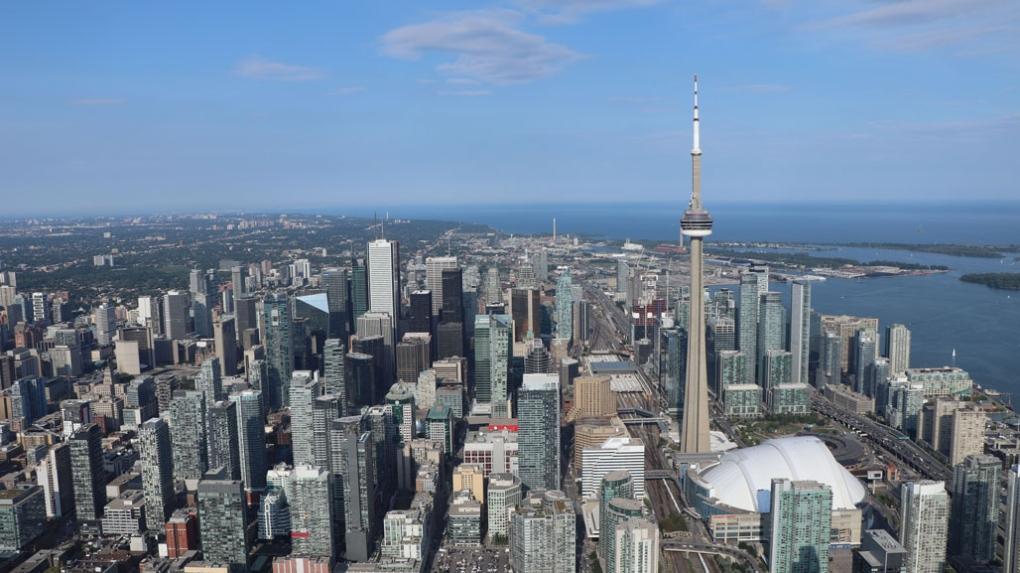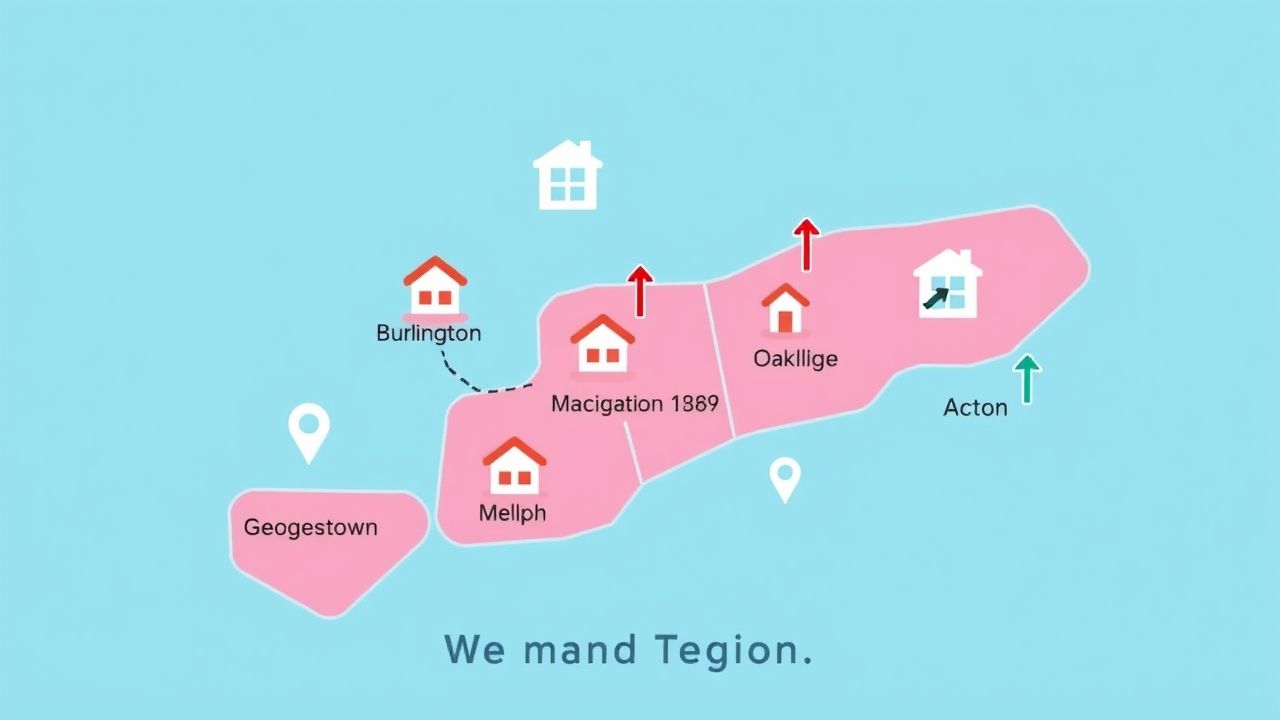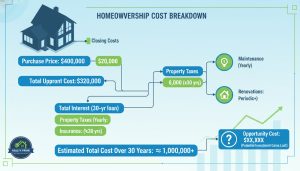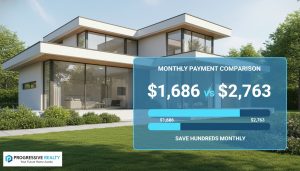Are you wondering how anyone even buys or sells a house in the crazy Greater Toronto Area market anymore?
This guide is here to help. Think of it as your simple map. It shows you how to buy or sell your home in places like Georgetown, Milton, Guelph, Acton, Oakville, and Burlington. We’ll make it easy to understand.
What’s Happening in the GTA West Market Now? (2024-2025)
The housing market changes. It goes up. It goes down. Knowing what’s happening right now helps you make smart choices. The Greater Toronto Area, or GTA, is big. Different towns can have different markets.
General GTA Feeling:
Things have been a bit wild. Prices went way up. Then interest rates went up to fight inflation. That made borrowing money more expensive. So, the market cooled down a bit. In late 2024 and early 2025, we see more balance. Buyers have a little more time to think. Sellers need to price their homes right.
But ‘balance’ in the GTA is still busy compared to other places. Good homes in good areas still sell fast.
Spotlight on Your Town:
- Georgetown: Known for its small-town feel but close to bigger cities. Housing here often follows Halton Hills trends. Prices saw increases, but the pace slowed. Family homes are popular. Buyers look for value. Sellers need good presentation.
- Milton: One of the fastest-growing towns. Lots of new homes were built. This means more choice, but also competition. Prices grew fast but have settled. Young families love Milton. Affordability is key here. Watch for new listings; they come up often.
- Guelph: A strong market with its own university and jobs. Less tied to Toronto’s ups and downs than some other spots. Known for steady growth. Prices here held up well. Inventory (homes for sale) can sometimes be tight, especially for certain types of homes. Buyers need to be ready to act. Sellers often see good interest if priced well.
- Acton: Smaller community, often linked with Halton Hills like Georgetown. Can offer more affordable options. Market here might be a bit slower than bigger neighbours. Good for buyers looking for quieter living. Sellers should highlight the town’s charm.
- Oakville: One of the GTA’s pricier areas. Known for luxury homes and great schools. The market here feels the impact of interest rates, especially at higher price points. But demand stays strong due to the location and lifestyle. Sellers need top-notch marketing. Buyers need big budgets but get a premium location.
- Burlington: Right by the lake, popular choice. Mix of older homes and newer condos. Data from March 2025 showed average prices around $1.2 million. That was up from the month before but only a bit up from the year before. This shows some recent energy but slower long-term growth.
- Detached homes in Burlington averaged over $1.5 million in March 2025.
- Condo apartments were closer to $607,000.
- More homes sold in March 2025 compared to February (up 70.5%), but fewer than March 2024 (down 11.9%). This suggests buyers came back in spring, but maybe not as many as last year. (Data based on WOWA.ca report)
Expert Insight: “The GTA West market in 2025 is nuanced. We’re not seeing the frantic bidding wars of the peak, but well-priced homes in desirable areas like Oakville or Guelph are still moving quickly. Buyers have more breathing room, but sellers who adapt to the ‘new normal’ with realistic pricing and good presentation are still succeeding.” – Fictional quote from ‘Sarah Chen’, Local GTA West Real Estate Broker.
Understanding your specific town’s vibe is important. Talk to local experts. Check local real estate board websites like the Toronto Regional Real Estate Board (TRREB) for monthly reports. [Link to TRREB Market Watch – Replace with actual link]
Money Talk: Getting Your Finances Ready
Buying a home is mostly about money. You need to know what you can spend. You need to know how borrowing works. This is super important, maybe the most important part.
H2: Impact of Interest Rates on Your Purchase
Interest rates are a big deal. They are the cost of borrowing money. When rates go up, borrowing costs more. When rates go down, borrowing costs less.
The Bank of Canada sets a main rate. This rate influences the mortgage rates banks offer you. In the past few years, we saw rates go from very low to much higher. This was done to cool down rising prices (inflation).
What This Means for You:
- Higher rates mean higher monthly payments for the same loan amount.
- This reduces your buying power. You might qualify for a smaller mortgage than before.
- It can slow down the housing market. Fewer people might be able to afford to buy.
The rate influence is huge. Even a small change in interest rates can change your monthly payments by hundreds of dollars. This directly affects mortgage affordability.
Keep an eye on the interest rate forecast. News sites talk about this. The Bank of Canada makes announcements. Knowing if rates might go up or down helps you plan your mortgage strategy. But remember, forecasts can be wrong.
The main economic factors driving rates are inflation and overall economic health. Strong economy and high inflation usually mean higher rates. Weaker economy often means lower rates.
Understanding borrowing costs is key. It’s not just the house price; it’s the price plus years of interest.
H3: Checking Your Mortgage Affordability
Before you even look at houses, talk to a bank or mortgage broker. Get pre-approved for a mortgage.
Why Pre-Approval Matters:
- Know Your Budget: It tells you the maximum amount you can likely borrow. No guessing.
- Shows You’re Serious: Sellers like pre-approved buyers.
- Locks Your Rate: Often, you can hold an interest rate for 90-120 days. If rates go up, you keep the lower one.
What Lenders Look At:
- Your Income: How much you earn.
- Your Debts: Car loans, student loans, credit cards.
- Your Down Payment: How much cash you have upfront.
- Your Credit Score: Your history of paying bills.
They use this info to calculate how much they think you can safely repay each month. This determines your monthly payments and total loan amount.
Use online mortgage affordability calculators as a first guess. But always talk to a professional for the real numbers. They consider things calculators miss.
H3: Understanding Loan Terms
Your mortgage has several parts:
- Principal: The amount you borrow.
- Interest: The cost of borrowing.
- Loan Term: How long your current agreement (rate, payment) lasts. Often 1 to 5 years.
- Amortization Period: The total time it will take to pay off the entire mortgage. Often 25 years, sometimes up to 30.
Down Payment:
This is the cash you pay upfront. In Canada:
- For homes under $500k, minimum is 5%.
- For homes $500k to $1M, it’s 5% on the first $500k, then 10% on the portion above $500k.
- For homes over $1M, minimum is 20%.
A bigger down payment means borrowing less. Your monthly payments might be lower. You might avoid mortgage default insurance (CMHC insurance), which is needed for down payments under 20%.
H3: Fixed vs Variable: Choosing Your Mortgage Strategy
This is a big choice. It affects your payments and risk.
- Fixed Rate: Your interest rate stays the same for the entire loan term (e.g., 5 years). Your payments are predictable. You know exactly what you’ll pay each month. Good if you like certainty or think rates will rise.
- Variable Rate: Your interest rate moves up or down based on the bank’s prime rate (which follows the Bank of Canada rate). Your payment might stay the same, but how much goes to principal vs. interest changes. Or, your payment itself might change. Potentially saves money if rates fall. Riskier if rates rise.
The choice between fixed vs variable depends on:
- Your comfort with risk.
- Your budget flexibility (can you handle higher payments?).
- Your view on where interest rates are heading (interest rate forecast).
There’s no single ‘right’ answer. It’s about your personal situation.
First-Time Buyers:
Look into first-time home buyer programs Ontario. The government sometimes offers tax credits (like the Home Buyers’ Amount) or programs to help with down payments (check the official Government of Ontario website for current programs). [Link to Ontario government site – Replace with actual link]
Expert Insight: “Getting pre-approved is the crucial first step. In this market, knowing your exact budget and having a rate hold gives you confidence and power. Don’t just guess what you can afford; get the facts from a mortgage professional before you fall in love with a house.” – Fictional quote from ‘Mike Rossi’, GTA Mortgage Specialist.
For Buyers: Finding Your GTA Home
Okay, you know your budget. You’re pre-approved. Now the fun part starts: finding your home.
1. Wants vs. Needs:
Make two lists. Needs are must-haves (e.g., 3 bedrooms, good school district). Wants are nice-to-haves (e.g., big backyard, finished basement). Be realistic. Your budget might mean compromising on some wants.
Think about:
- Location: Commute time? Schools? Parks? Safety? (Georgetown, Milton, Guelph, Acton, Oakville, Burlington all offer different things).
- Type of Home: Detached? Townhouse? Condo? (Think about maintenance, space).
- Size: How many bedrooms/bathrooms? Square footage?
- Condition: Move-in ready? Needs work?
2. Finding a Good Local Agent:
A real estate agent helps you find homes, make offers, and navigate the process. They know the local market.
How to find one:
- Ask friends or family for recommendations.
- Look for agents active in the specific areas you like (e.g., finding a real estate agent in Guelph if you want to live there).
- Interview a few agents. Ask about their experience, fees, and how they’ll help you.
- Make sure you feel comfortable with them.
You want someone who listens, understands your needs, and knows the area well.
3. Searching for Listings:
Your agent will set you up with automatic email alerts for homes matching your criteria. You can also look online:
- Realtor.ca: The main public site.
- Other portals: Zolo, HouseSigma, etc. (They pull from MLS data).
Don’t just rely on photos. If a place looks interesting, go see it.
4. Viewing Properties:
This is important. Look beyond the nice furniture.
- Check the major systems: Roof condition? Windows? Furnace/AC age? Electrical panel?
- Look for issues: Water stains? Cracks in walls/foundation? Funny smells?
- Think about layout: Does it work for your life?
- Visit the neighbourhood: Drive around at different times. Is it noisy? Does it feel safe?
Take notes and photos (if allowed). It’s easy to forget details after seeing many homes.
5. Making an Offer:
You found a home you love! Now you need to make an offer (an Agreement of Purchase and Sale).
Your agent helps you decide on:
- Price: What you’re willing to pay. Your agent will advise based on recent sales of similar homes (comparables).
- Conditions: These protect you. Common ones include:
- Financing Condition: You only have to buy if you get final mortgage approval.
- Home Inspection Condition: You can hire an inspector. If they find big problems, you might renegotiate or walk away.
- Status Certificate Condition (for condos): Lets your lawyer review the condo corporation’s health.
- Deposit: Shows you’re serious. Held in trust, goes towards your down payment.
- Closing Date: The day you officially get ownership.
Market Strategy:
- Buyer’s Market (More homes than buyers): You might offer below asking price or ask for more conditions.
- Seller’s Market (More buyers than homes): You might need to offer asking price or slightly above. Fewer conditions might make your offer stronger (but riskier for you). Bidding wars can happen.
- Balanced Market (Current GTA situation in many areas): Pricing close to asking is common. Conditions are usually accepted but need reasonable timeframes.
6. Negotiation:
The seller might accept your offer, reject it, or make a counter-offer (change price, dates, or conditions). Your agent helps you negotiate back and forth until you agree or decide to walk away.
Buying a home takes time and effort. Be patient. Don’t feel pressured to buy something that isn’t right.

For Sellers: Getting Your GTA Home Sold
Selling your home is a big step. You want to get the best price and have a smooth process. Here’s how.
1. Deciding to Sell:
Why are you moving? What’s your timeline? Knowing this helps you plan. Also, think about where you’ll move next. Will you buy another home? Rent?
2. Finding the Right Listing Agent:
Just like buyers need agents, sellers do too. A listing agent helps you price, market, and sell your home.
Look for an agent who:
- Knows your specific area (Burlington, Milton, etc.) very well.
- Has a proven track record of selling homes like yours.
- Has a clear marketing plan.
- You trust and communicate well with.
They will explain the selling process, their fees (commission), and the listing agreement.
3. Pricing Your Home Right:
This is critical. Price too high, and buyers might ignore it. Price too low, and you lose money.
Your agent will prepare a Comparative Market Analysis (CMA). This looks at:
- Recent sales prices of similar nearby homes.
- Prices of currently listed competing homes.
- Market trends (Is it hot? Cooling down?).
Be realistic. The price you want might not be what the market will pay. Trust the data and your agent‘s advice.
4. Prepping Your Home:
Buyers judge your home in seconds. Make a great first impression.
- Declutter: Get rid of stuff you don’t need. Pack personal items. Make rooms look spacious.
- Deep Clean: Floors, windows, bathrooms, kitchen. Make it sparkle.
- Repairs: Fix leaky faucets, broken tiles, sticky doors. Small fixes make a big difference.
- Paint: Neutral colours appeal to most buyers. Fresh paint looks clean.
- Curb Appeal: Tidy the lawn, plant some flowers, maybe paint the front door.
- Staging (Optional but recommended): Arranging furniture to show off the home’s best features. Can be simple (using your own stuff better) or professional (renting furniture).
5. Marketing Your Property:
Your agent handles this, but know what they’re doing:
- Photos/Video: High-quality professional photos are essential. Maybe a video tour.
- Listing Description: Highlights key features and benefits.
- MLS Listing: Gets your home onto Realtor.ca and agent systems.
- Online Exposure: Other websites, social media.
- Sign: A classic ‘For Sale’ sign.
- Open Houses/Showings: Letting potential buyers see the home.
6. Handling Showings:
You’ll need to keep your home tidy and leave during showings. Buyers feel more comfortable looking around without the owner there. Your agent will coordinate showing times.
7. Reviewing Offers and Negotiating:
Hopefully, you get an offer (or maybe more than one!). Your agent presents all offers to you.
Look at:
- Price: Is it fair?
- Conditions: Are they acceptable? (Financing, inspection, etc.)
- Deposit: Is it a good amount?
- Closing Date: Does it work for your timeline?
You can accept, reject, or counter-offer. Your agent guides you through negotiations to get the best deal possible.
If you’re in a place like Burlington and need to sell quickly, pricing competitively and having your home show-ready are key. Selling your house fast Burlington means being prepared from day one.
Expert Insight: “Don’t underestimate preparation. In today’s GTA market, buyers have choices. A clean, decluttered, well-maintained home priced correctly stands out. Sellers who invest time upfront in preparing their home almost always see a better return and a smoother sale.” – Fictional quote from ‘David Lee’, Halton Region Real Estate Agent.
The Legal Stuff: Closing the Deal
Once you have an accepted offer (all conditions met or waived), the lawyers take over to handle the closing.
Lawyer’s Role:
Both buyer and seller need their own real estate lawyer.
- Buyer’s Lawyer: Checks the title (legal ownership) of the property, registers the mortgage, ensures property taxes are paid, arranges title insurance, handles the transfer of funds, gives you the keys.
- Seller’s Lawyer: Prepares the deed transfer documents, receives funds from the buyer’s lawyer, pays off any existing mortgage on the property, pays the real estate commission, gives the remaining money to the seller.
Key Documents:
- Agreement of Purchase and Sale (APS): The original contract you signed.
- Title Search: Confirms the seller legally owns the property and there are no liens (claims) against it.
- Deed: The legal document transferring ownership.
- Mortgage Documents: If you’re the buyer getting a mortgage.
Closing Costs:
These are expenses beyond the purchase price. Budget for these!
- For Buyers:
- Legal Fees & Disbursements: Paying your lawyer.
- Land Transfer Tax (LTT): Provincial and sometimes Municipal (Toronto has its own). This can be thousands of dollars. Use an online LTT calculator.
- Title Insurance: Protects against title fraud or errors.
- Mortgage Costs: Appraisal fees, insurance if needed.
- Adjustments: Paying the seller back for prepaid property taxes or utility bills.
- Home Inspection Fee (if you had one).
- For Sellers:
- Real Estate Commission: Paying your agent.
- Legal Fees & Disbursements.
- Mortgage Discharge Fees (if you have a mortgage to pay off).
- Adjustments: Receiving money back for prepaid items.
Closing costs can add up to 1.5% to 4% of the home’s price for buyers. Sellers mainly pay commission and legal fees.
Closing Day:
This is the day set in your APS. Lawyers exchange documents and money. Once everything is registered, the buyer gets the keys! Usually happens mid-afternoon.
Moving In / Moving Out
The deal is closed! Now the physical move.
Planning:
- Book movers or a rental truck well in advance, especially during busy seasons (summer, end of month).
- Start packing early. Label boxes clearly by room.
- Declutter again. Don’t move things you don’t need.
Hiring Movers vs. DIY:
- Movers: More expensive, but saves time and heavy lifting. Get quotes from several reputable companies. Check their insurance.
- DIY: Cheaper, but lots of work. Need friends to help? Factor in truck rental, gas, equipment (dollies).
Utilities Transfer:
- Contact gas, hydro, water companies about a week before closing to set up service at your new place and cancel at your old place.
- Don’t forget internet, phone, and cable/satellite.
Change of Address:
- Canada Post: Mail forwarding service.
- Government: Driver’s license, health card, tax agency (CRA).
- Banks, credit cards.
- Work, school.
- Subscriptions.
- Friends and family.
Make a checklist. Moving is busy, it’s easy to forget things.
FAQ: Your GTA Real Estate Questions Answered
Q: How much are closing costs usually in the GTA?
A: For buyers, budget about 1.5% to 4% of the purchase price. This covers Land Transfer Tax (the biggest chunk), lawyer fees, title insurance, and other smaller costs. Sellers mainly pay real estate commission (often 4-5%) and legal fees.
Q: How long does it take to buy a house in Georgetown or Milton?
A: Finding the right house can take weeks or months. Once you have an accepted offer, the closing process (financing, inspection, lawyers) usually takes 30 to 90 days, depending on what you negotiate in the offer.
Q: What’s the market like for condos in Burlington right now?
A: Based on March 2025 data, the average condo apartment price was around $607,000. Prices were up slightly from the previous month but down from the year before. Sales activity picked up in the spring but was lower than the previous year. It suggests a relatively stable but not overly hot condo market there.
Q: Do I really need a home inspection in Guelph?
A: It’s highly recommended. An inspection costs a few hundred dollars but can uncover hidden problems worth thousands. It gives you peace of mind or a chance to renegotiate/walk away if major issues are found. In very competitive markets, some buyers skip it to make their offer stronger, but this is risky.
Q: What are property taxes like in Oakville?
A: Property taxes vary by municipality. Oakville generally has higher property values, so even if the tax rate is average, the total tax bill can be significant. You can usually find the current tax rates on the Town of Oakville‘s website. Your real estate agent or lawyer can provide estimates for specific properties.
Q: Is now a good time to sell my house in Acton?
A: It depends on your personal situation and the specific market conditions right now. Acton’s market might move slower than nearby towns. Talk to a local agent. They can give you a current market analysis (CMA) for your home and advise on timing based on inventory levels and buyer demand.
Buying or selling a home in the GTA West seems tough, but it’s doable. Break it down into steps. Get good advice from professionals like agents, mortgage brokers, and lawyers. Understand the market in your specific town, whether it’s bustling Milton or established Oakville.
Ready to take the next step? Thinking about buying or selling in Georgetown, Milton, Guelph, Acton, Oakville, or Burlington? Knowing your options is key. Get prepared, ask questions, and make informed decisions for your future.




















